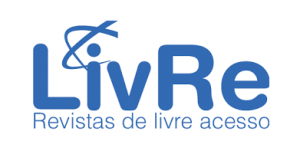Malpractice Policy
This Journal, AJCEAM, is committed to ethics and quality in publication. We support ethical standards of behavior for all parties involved in the publication process: the author, the journal editor, the reviewers, and the publisher. We do not accept plagiarism or any other unethical behavior.
Editor's Responsibilities:
Publication Decision: The journal editor is responsible for deciding which submitted articles should be published. The editor is guided by the editorial board's policies and strictly adheres to legal requirements regarding defamation, copyright infringement, and plagiarism. The editor may consult the editorial board or reviewers in making decisions.
Fair Review: The editor should evaluate manuscripts based on their intellectual content, without any discrimination based on race, gender, sexual orientation, religious belief, ethnic origin, nationality, or political philosophy of the authors.
Confidentiality: The editor and any editorial staff must not disclose any information about a submitted manuscript to anyone other than the author, reviewers, potential collaborators, other editorial advisors, and the publisher, as appropriate.
Disclosure and Conflict of Interest: The editor must not use unpublished information from a submitted manuscript for their own research without the express written consent of the author. The editor should abstain from evaluating manuscripts in which they have a conflict of interest resulting from competitive or collaborative relationships or any other kind of relationship or connection with any of the authors, companies, or (possibly) institutions associated with the articles.
Participation and Cooperation in Investigations: The editor should take reasonable responsive measures when ethical complaints are presented regarding a submitted manuscript or published article.
Reviewer's Responsibilities:
Contribution to Editorial Decision: Peer review helps the editor in making editorial decisions and through editorial communication with the author, it can also assist the author in improving the article.
Timeliness: Any selected reviewer who feels unqualified to review the research reported in a manuscript or knows that their prompt review will be impossible should notify the editor and excuse themselves from the review process.
Confidentiality: All manuscripts received for review should be treated as confidential documents. They must not be shown or discussed with others.
Objectivity Standards: Reviews should be conducted objectively, and reviewers should express their opinions clearly with supporting arguments.
Source Acknowledgment: Reviewers should identify relevant published works that have not been cited by the authors. The reviewer should also bring to the editor's attention any substantial similarity or overlap between the manuscript under consideration and any other published document of which they have personal knowledge.
Disclosure and Conflict of Interest: Privileged information or ideas obtained through peer review must be kept confidential and not used for personal advantage. Reviewers should not consider manuscripts in which they have a conflict of interest resulting from competitive or collaborative relationships or any other kind of relationship or connection with any of the authors, companies, or (possibly) institutions associated with the articles.
Author's Responsibilities:
Reporting Standards: Authors of original research reports should present an accurate account of the work performed, as well as an objective discussion of its significance. The underlying data should be accurately presented in the article. A paper should contain sufficient detail and references to permit others to replicate the work. Fraudulent or intentionally inaccurate statements constitute unethical behavior and are unacceptable.
Originality and Plagiarism: Authors must ensure that their work is entirely original and if they have used the work and/or words of others, it should be properly cited or quoted. Plagiarism in all its forms constitutes unethical publishing behavior and is unacceptable.
Multiple, Redundant, or Concurrent Publications: An author should not generally publish manuscripts that essentially describe the same research in more than one journal or primary publication. Submitting the same manuscript to more than one journal simultaneously and/or publishing the same article in different journals constitute unethical publishing behavior and are unacceptable.
Source Acknowledgment: Proper acknowledgment of the work of others must always be made. Authors should cite publications that have been influential in determining the nature of the work reported. Information obtained privately, such as in conversation, correspondence, or discussion with third parties, must not be used or reported without explicit and written permission from the source. Information obtained in the course of confidential services, such as manuscript peer review or grant applications, must not be used without the explicit and written permission of the author of the work involved in those services.
Authorship of the Article: Authorship should be limited to those who have made a significant contribution to the conception, design, execution, or interpretation of the reported study. All those who have made significant contributions should be listed as co-authors. Others who have participated in certain substantive aspects of the research project should also be acknowledged or listed as contributors. The author should ensure that all appropriate co-authors and no inappropriate co-authors are included in the article and that all co-authors have seen and approved the final version of the paper and have agreed to its submission for publication.
Disclosure and Conflict of Interests: All authors should disclose in their manuscripts any financial or substantive/material conflict of interest that might lead to influencing the results or interpretations in their manuscripts. All sources of financial support for the project should be disclosed.
Fundamental Errors in Published Works: When an author discovers a significant error or inaccuracy in their own published work, it is their obligation to promptly notify the journal editor or publisher and cooperate with the editor to retract or correct the article.
Publisher's Responsibilities:
We are committed to ensuring that obtaining advertising funds, reprints, or other commercial revenue does not have any impact or influence on editorial decisions.
This Ethics Policy is based on recommendations from Elsevier and COPE Guidelines for Best Practices for Journal Editors.


